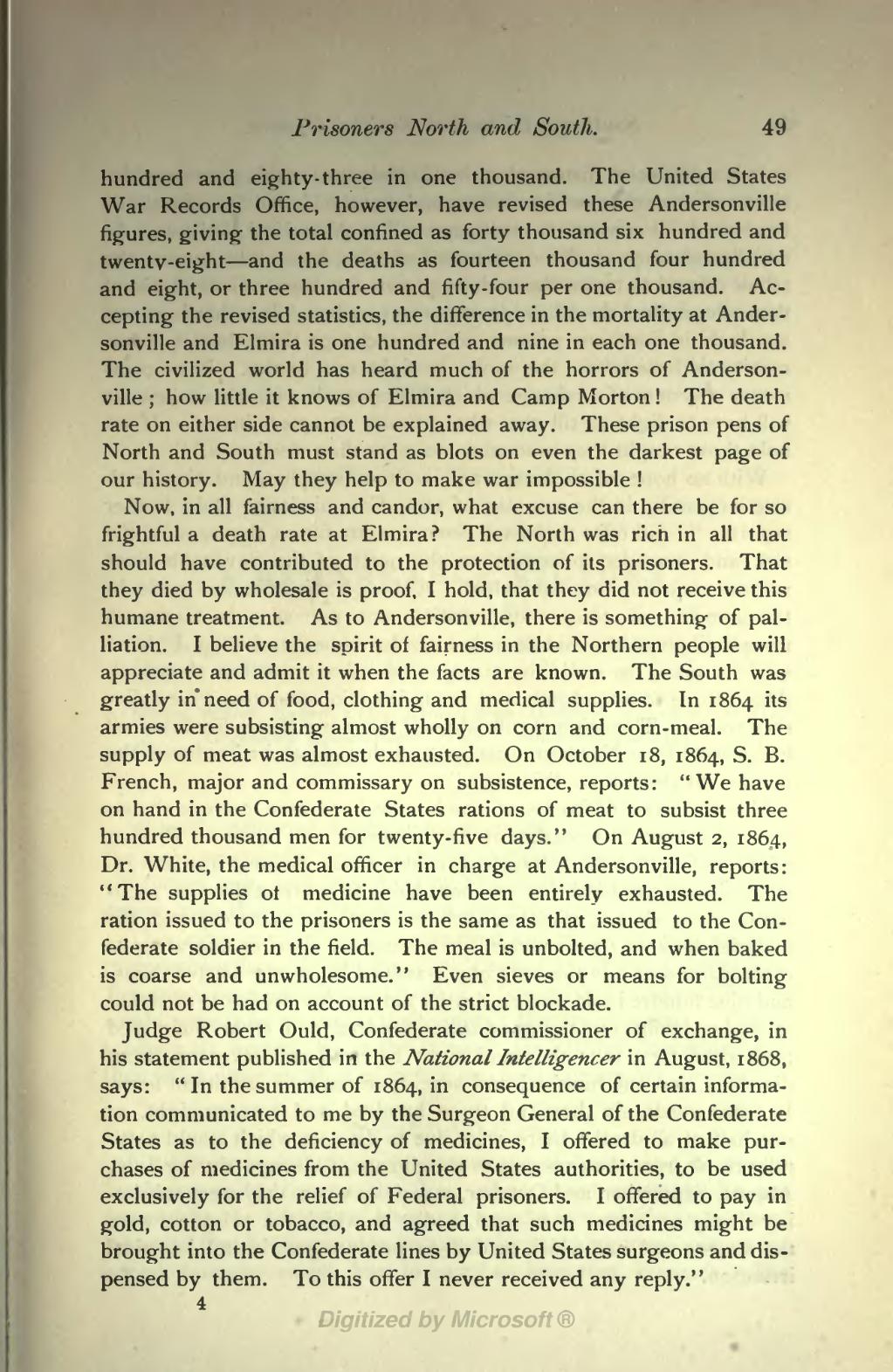Prisoners North and South.
49
hundred and eighty-three in one thousand. The United States War Records Office, however, have revised these Andersonville figures, giving the total confined as forty thousand six hundred and twentv-eight and the deaths as fourteen thousand four hundred and eight, or three hundred and fifty-four per one thousand. Ac- cepting the revised statistics, the difference in the mortality at Ander- sonville and Elmira is one hundred and nine in each one thousand. The civilized world has heard much of the horrors of Anderson- ville ; how little it knows of Elmira and Camp Morton ! The death rate on either side cannot be explained away. These prison pens of North and South must stand as blots on even the darkest page of our history. May they help to make war impossible !
Now, in all fairness and candor, what excuse can there be for so frightful a death rate at Elmira? The North was rich in all that should have contributed to the protection of its prisoners. That they died by wholesale is proof, I hold, that they did not receive this humane treatment. As to Andersonville, there is something of pal- liation. I believe the spirit of fairness in the Northern people will appreciate and admit it when the facts are known. The South was greatly in* need of food, clothing and medical supplies. In 1864 its armies were subsisting almost wholly on corn and corn-meal. The supply of meat was almost exhausted. On October 18, 1864, S. B. French, major and commissary on subsistence, reports: "We have on hand in the Confederate States rations of meat to subsist three hundred thousand men for twenty-five days." On August 2, 1864, Dr. White, the medical officer in charge at Andersonville, reports: "The supplies ot medicine have been entirely exhausted. The ration issued to the prisoners is the same as that issued to the Con- federate soldier in the field. The meal is unbolted, and when baked is coarse and unwholesome." Even sieves or means for bolting could not be had on account of the strict blockade.
Judge Robert Ould, Confederate commissioner of exchange, in his statement published in the National Intelligencer in August, 1868, says: "In the summer of 1864, in consequence of certain informa- tion communicated to me by the Surgeon General of the Confederate States as to the deficiency of medicines, I offered to make pur- chases of medicines from the United States authorities, to be used exclusively for the relief of Federal prisoners. I offered to pay in gold, cotton or tobacco, and agreed that such medicines might be brought into the Confederate lines by United States surgeons and dis- pensed by them. To this offer I never received any reply." 4
